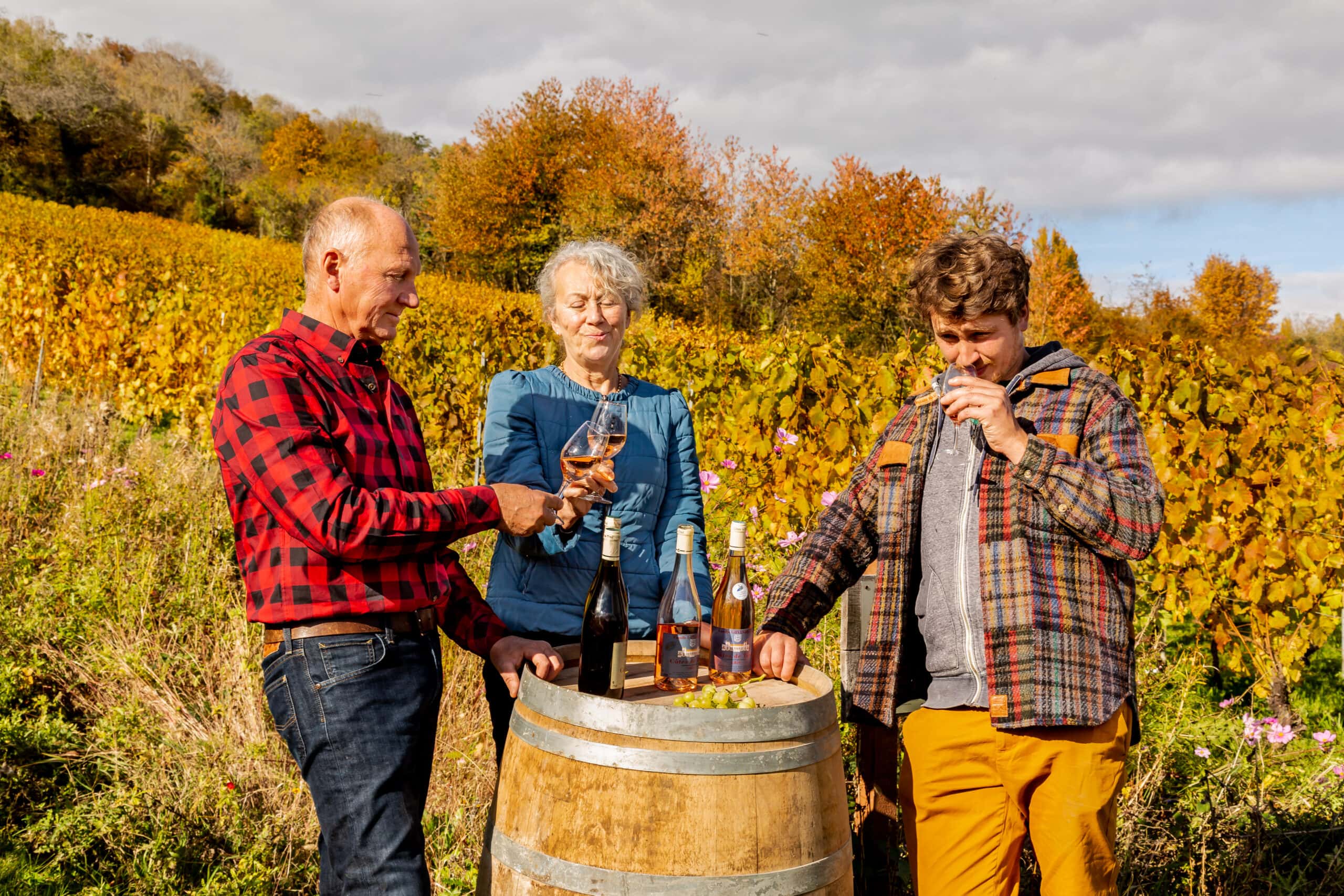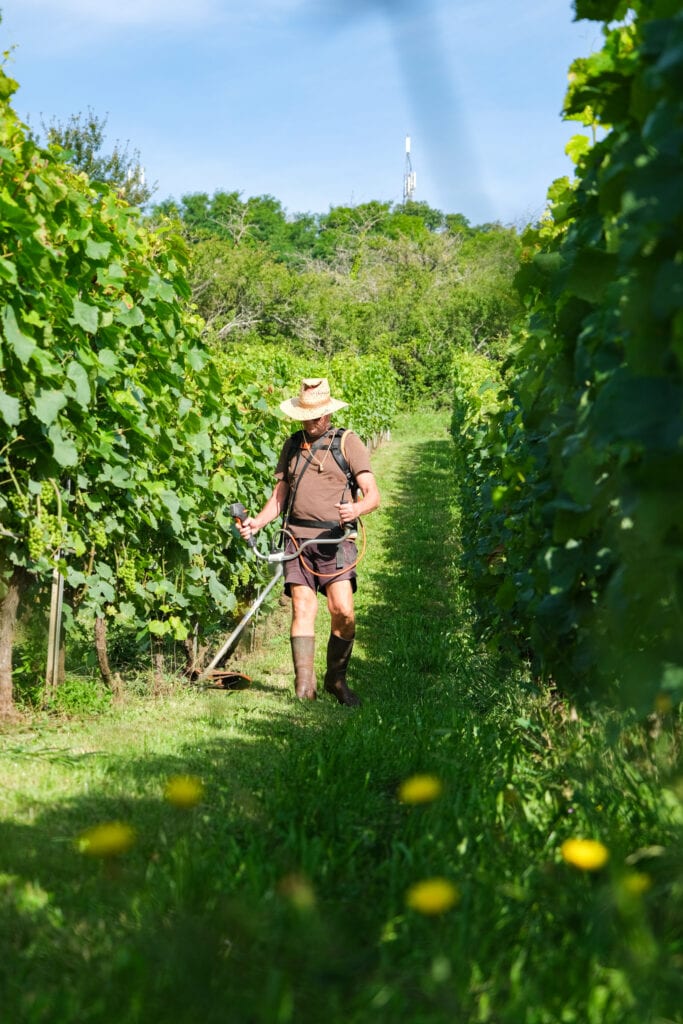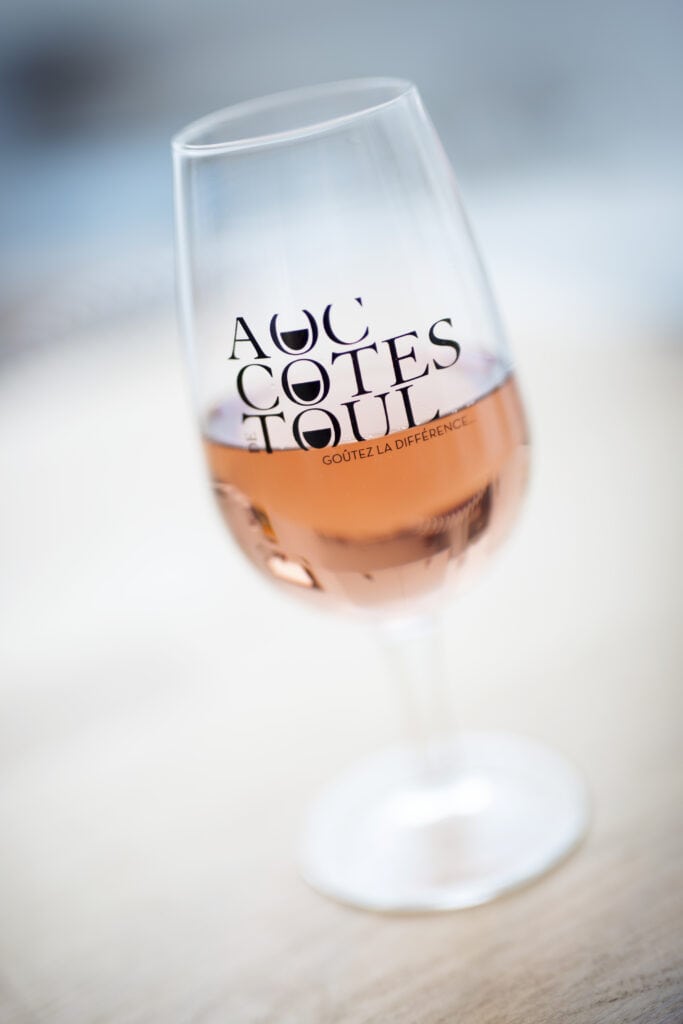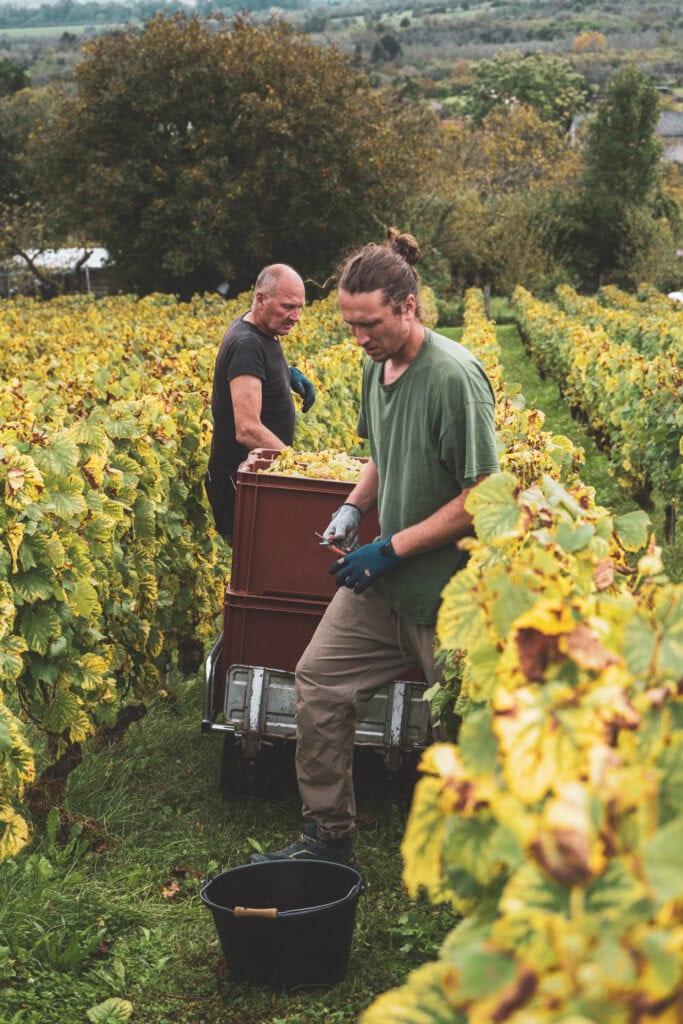
The vineyard
From a mutual passion to a family ambition
The passion of the vine and the wine inspires Catherine and Philippe since they first met in the early 80s. After his agronomy studies, Philippe joined the Lycée Viticole de la Champagne in Avize as a viticulture-oenology teacher. He then became director of operations with a dozen hectares of vineyards to manage and about 100,000 bottles of champagne to produce each year.
As for Catherine, she actively took part in the creation of the cooperative ”Les Vignerons du Toulois” in Mont-Le-Vignoble. As the smallest cellar-cooperative in France, it groups together 8 members for a surface of 9 hectares. The pressed grapes come from almost all the vineyard’s terroirs. This provides an ideal palette for making AOC Côtes de Toul wines, including the well-known Gris de Toul. To this day, Catherine is still the cooperative’s president. On January 23, 2023, she was awarded the Prix d’Excellence by the Concours Général Agricole.
In the early 90’s, Philippe and Catherine bought and planted vineyards in Domgermain and Blénod-Lès-Toul. The total area is 2.8 hectares of Auxerrois (white), Pinot Noir and Gamay (red) grapes. The first harvest took place in 1991, with 25,000 kilos of grapes delivered to the cooperative. In 2017, Catherine and Philippe decided to sell part of their production in Choloy-Ménillot, under the Famille Loevenbruck label. Initially intended exclusively for friends and B&B guests, the wines are now offered to a wider clientele.



Photo credit: Bertrand Jamot ARTGE Destination Lorraine
New Generation and projects
In 2025, Simon (one of Catherine and Philippe’s two sons) joined the family adventure as vineyard manager. With a BTS in viticulture and oenology from the Lycée Viticole de la Champagne, and solid experience in Champagne, Languedoc and AOC Cotes de Toul, Simon has proven himself and will take over from Philippe with great success.
Initially, the aim is to ensure the continuity of the approach taken since the vines were planted in 1990: harvest the grapes from our plots in Domgermain and Blénod-Les-Toul and vinify them at the Coopérative des Vignerons du Toulois in Mont-Le-Vignoble. Eventually, Simon would like to take advantage of the brand-new IGP Vins de Lorraine appellation (EU Official Journal 07/10/24), which includes our village (unlike the AOC Côtes de Toul), to increase the size of the operation by planting in Choloy, directly behind the Château. A new parcel of vines in Choloy would be an achievement as fantastic as it would be symbolic. Indeed, before the wars and the phylloxera that decimated them, our hillsides were covered with vines, which is one of the reasons why Baron De Mesny chose this location to build his residence here in the early 19th century. The house was equipped with large cellars and a solid oak wine press, also used by the villagers. And so, more than two centuries later, our house has returned to its original vocation!
Translated with DeepL.com (free version)
Respect for the land and biodiversity
The Domgermain parcel has been managed organically for 5 years now, while the Blénod Les Toul vines are still treated in a “reasoned” way, because of their different management method (low vines and tight rows). Organic is more complicated to implement there, but the goal is definitely to make it happen. During the winter, we practice eco-pasture in Domgermain, thanks to the intervention of our 6 sheeps and a dozen geese provided by a neighbor. The combination of this “micro cattle” also contributes to natural and totally free organic fertilization throughout the winter season.
